Artificial intelligence is probably the biggest buzzword of recent years. And no wonder, since its impact on our lives and work has been immense.
But there’s one area of business that can benefit from AI particularly well—customer support.
AI customer service has the power to improve user experience, scale businesses, optimize the workload of support teams, and cut costs.
However—
How to get started with AI customer service? How to use its potential to the fullest? And what are the best tools?
This article is the only guide you need to explore on the topic.
Let’s get straight to it!
In this article:
- What is AI in customer service
- Use cases and real-life examples
- Benefits of AI customer service
- How to integrate it into your business
- What to consider when choosing the system
- The future of AI customer service
Supercharge your customer service with Lyro by Tidio
Interested in learning more about offering stellar customer service? Check out these pieces:
- 8 Steps to Build an Excellent Customer Service Strategy
- 10 Best Practices for Ecommerce Customer Service
- 19 Best Customer Service Training Ideas and Resources
Let’s start from the basics—
What is AI customer service?
AI customer service refers to the use of tools powered by artificial intelligence to automate support and improve its efficiency. The software can respond to customer inquiries, welcome new users, recover abandoned carts, answer FAQs, and more.
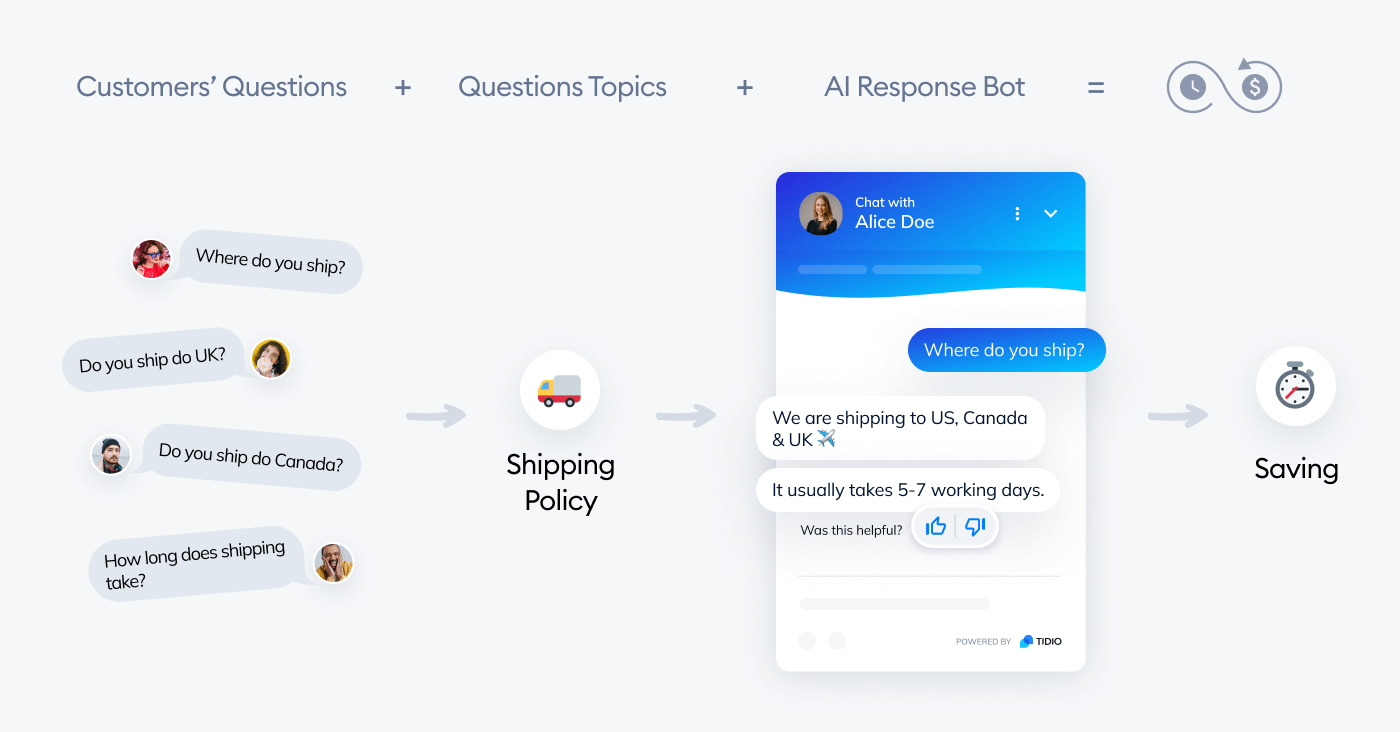
The crucial components of AI customer service include:
- Natural language processing (NLP)
- Machine learning (ML)
- Input analysis
- Dialogue management
AI customer experience has become the focal point of many companies looking for innovation and growth. And no wonder—when done right, AI can dramatically improve customer support efforts, retention, and user satisfaction.
Now—
What are your options when merging AI in your business? And how do you make the most of them?
Let’s find out.
Examples of AI in customer service
Artificial intelligence in customer service comes in many shapes and forms. Each of them can improve your support processes and help you excel at your communication with visitors.
Here are some examples of AI in customer service you should consider when looking to offer stellar support.
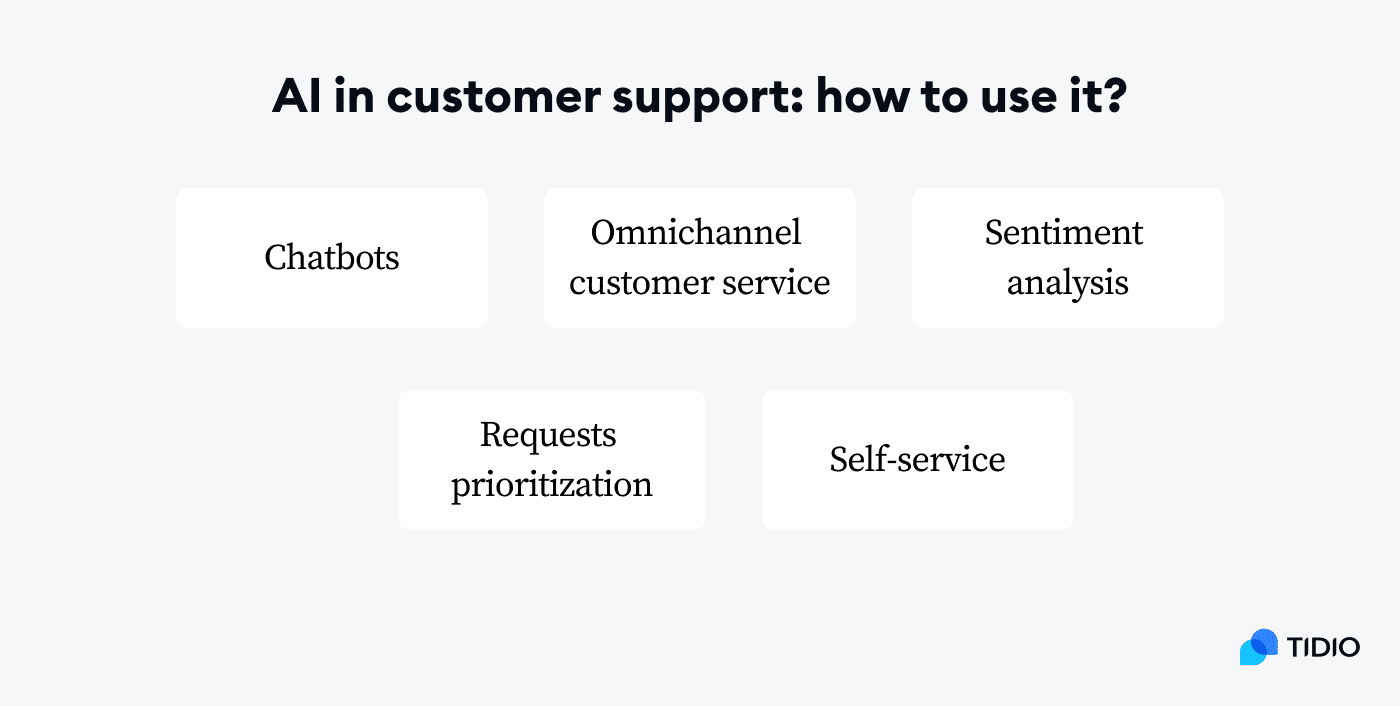
1. AI customer service chatbots
When thinking about AI customer service solutions, chatbots are usually the first thing that comes to mind. And it makes sense, especially since AI chatbots are powerful tools that use machine learning, predictive analytics, and natural language processing to provide exceptional customer service and assist visitors.

How do chatbots work so well?
Essentially, they’re designed to quickly recognize common speech patterns and chat triggers in order to provide relevant information based on their knowledge sets. You can design conversation flows for your bots, use ready-made templates, or choose LLM-powered (Large Language Model) chatbots, like Lyro, that learn from each user interaction they have.
The good news is that many AI-powered chatbots do not require any coding skills to set up. The steps you need to take involve choosing the channels and the chatbot provider, designing the conversation flows, and pre-testing the chatbot.
Saying that every business needs a chatbot is not an overstatement. From huge names like Sephora, Starbucks, and Spotify to smaller local businesses and 1-person companies—everyone can benefit from exceptional customer service automation.
Make AI-powered customer service a reality for your business
Read more: Learn everything about how to create a chatbot for your website in our dedicated article.
2. AI for omnichannel customer service
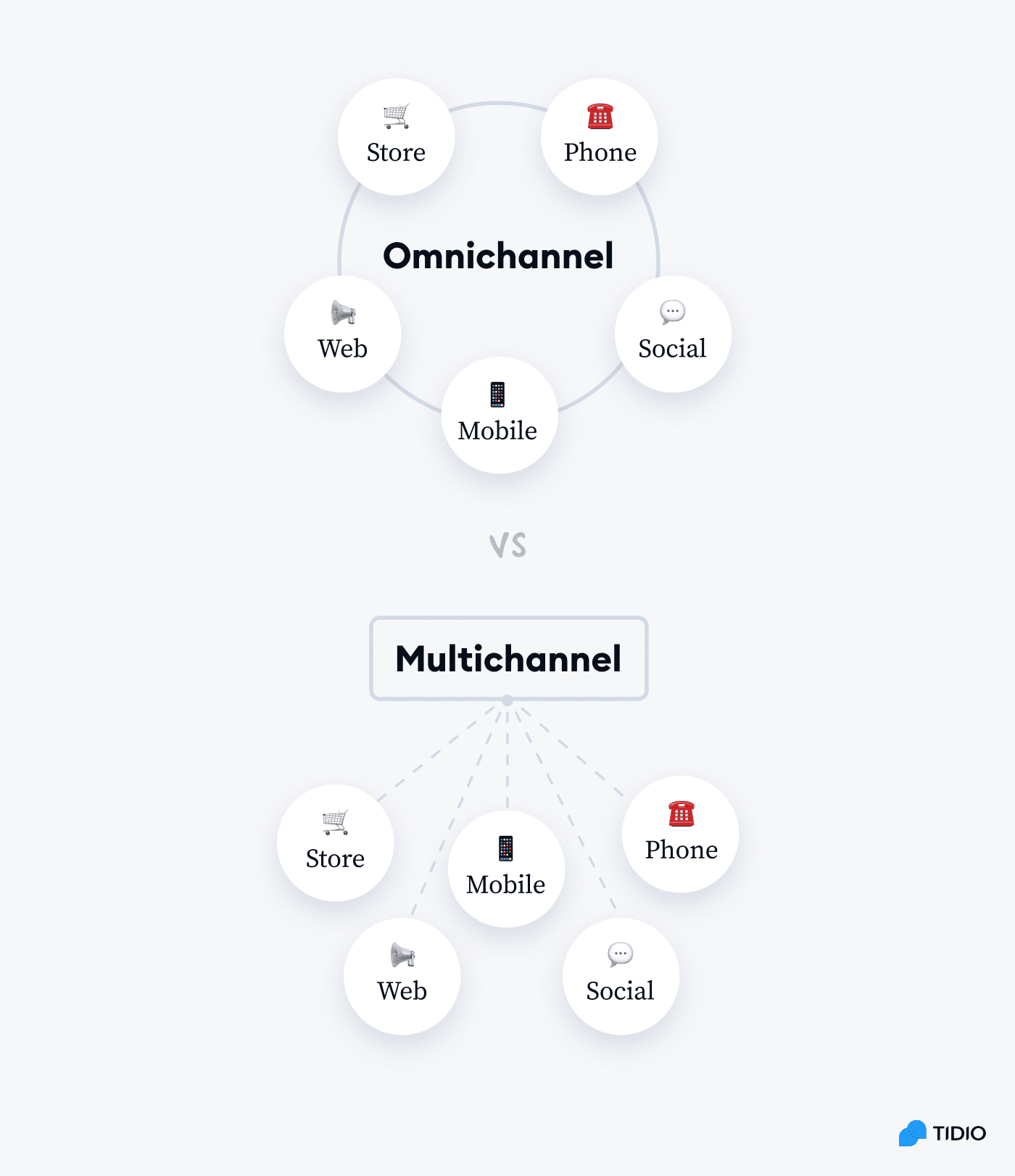
AI for customer experience can become a great addition to your omnichannel support strategy. Essentially, omnichannel is a user engagement and lead generation approach. It ensures the company provides a consistent customer experience across different channels, devices, and platforms. In fact, studies show that the omnichannel approach results in almost 10% annual revenue growth for businesses.
How does AI fit here?
Actually, it fits perfectly. Seamless AI customer service can positively impact your omnichannel strategy by routing shoppers to the right support channels. For example, if the issue is complex, AI can direct customers to a live chat agent who can help quickly resolve it. AI can also offer to chat on Instagram, Messenger, or WhatsApp for more convenient communication.

One of the well-known examples of AI omnichannel support is Uber. Apart from the mobile app with chatbots, it offers email and social media automated support, real-time updates, local support centers, and a dedicated platform for corporate clients.
3. AI customer service for sentiment analysis
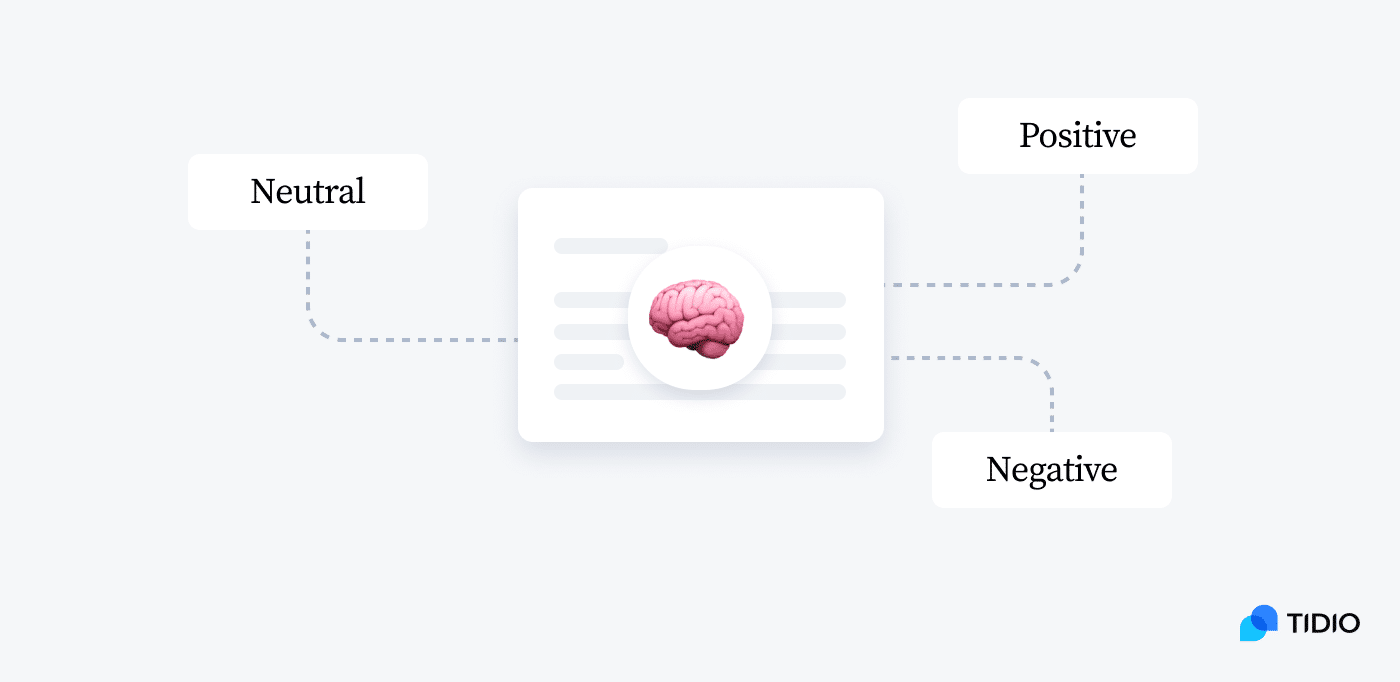
This is where it gets even more interesting. Sentiment analysis is a type of NLP (natural language processing) that uses AI to recognize the sentiment and emotional tone expressed in text.
AI tools can answer customer requests with their sentiment in mind, which prevents the feeling of “chatting with a robot”. Advanced AI solution that conveys the brand’s voice, values, and respect for clients helps to improve the user experience.

Apart from scraping requests and customer questions to support, AI-powered sentiment analysis tools can also help with social listening. They monitor brand reputation, catch user feedback comments on social media, and gather insights for product improvement.
This is important, since every day, around 328.77 million terabytes of data is generated on the internet. Users write more than thousands of comments and status updates on Facebook and Twitter every minute. AI can make sense of this data and analyze it as it comes, generating actionable and timely insights.
Read more: Check out our complete guide on conversational AI and how to use its fullest potential.
4. AI for support request prioritization
As artificial intelligence customer service is a true assistant for your business, it should work in sync with your human agents. And this is the main purpose of request prioritization and intent analysis.
Automation means that AI takes care of all basic customer queries and repetitive tasks. This allows humans to focus on more complex challenges that require human intelligence, emotional involvement, and attention.
AI tools can identify keywords and analyze the nature of the request to understand if they should direct it to a human agent. Afterward, if needed, the software tags the right customer service representatives to take over the case.
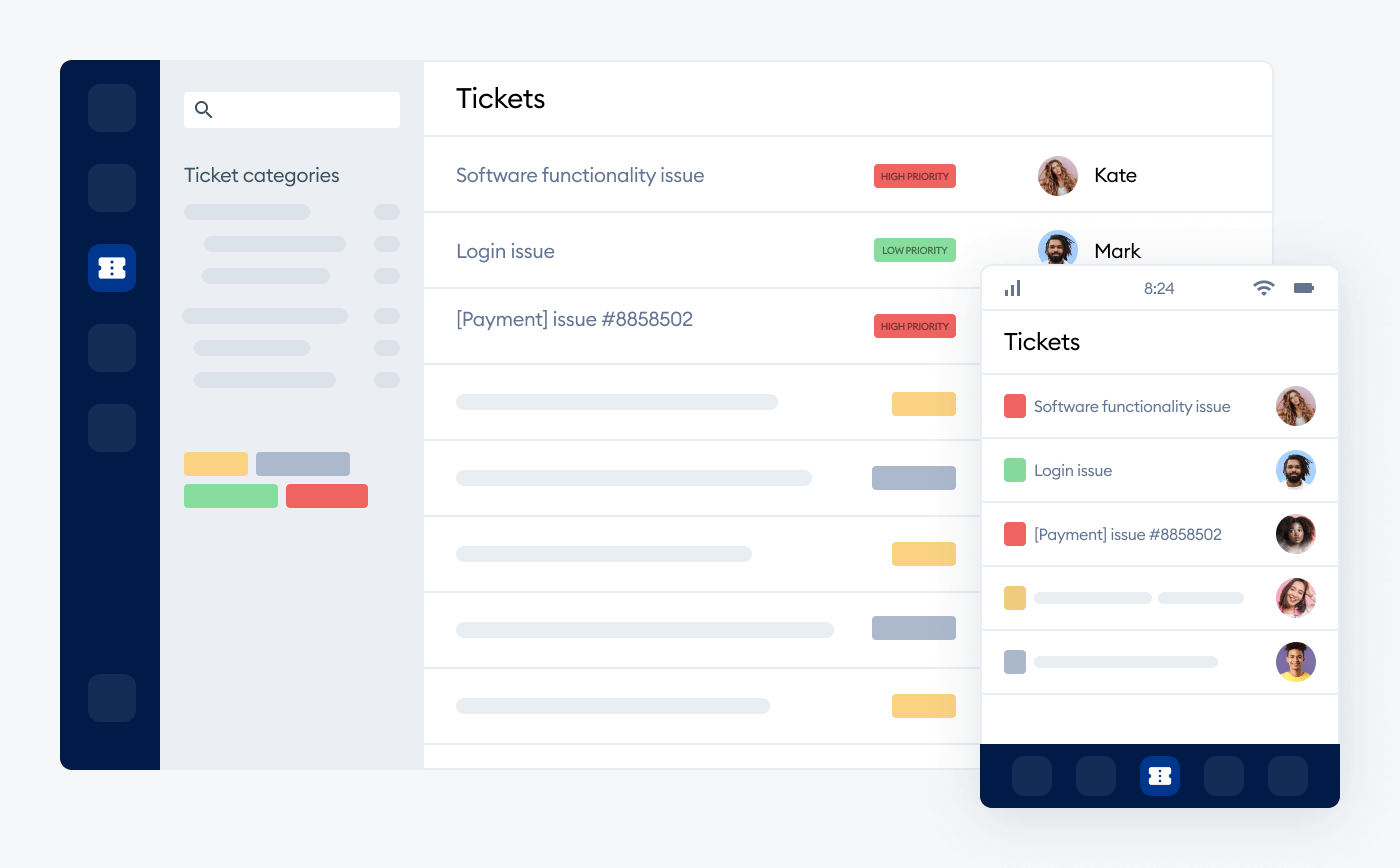
The software also allows your customer service team to grow and develop as professionals. Instead of spending hours answering similar questions, they can focus on really complicated support tickets that allow them to apply their skills and professionalism in practice.
Read more: Learn more about Tidio’s inbox tool and what it’s capable of. Also, discover the best automated ticketing systems available on the market today.
5. AI for self-service
AI can help customers with necessary self-service resources at every stage of their customer journey.
How exactly?
Well, AI knows your website and the knowledge base like the back of its (nonexistent) hand. It scrapes FAQs, offers discounts, and often knows how to solve a particular problem before it even occurs.
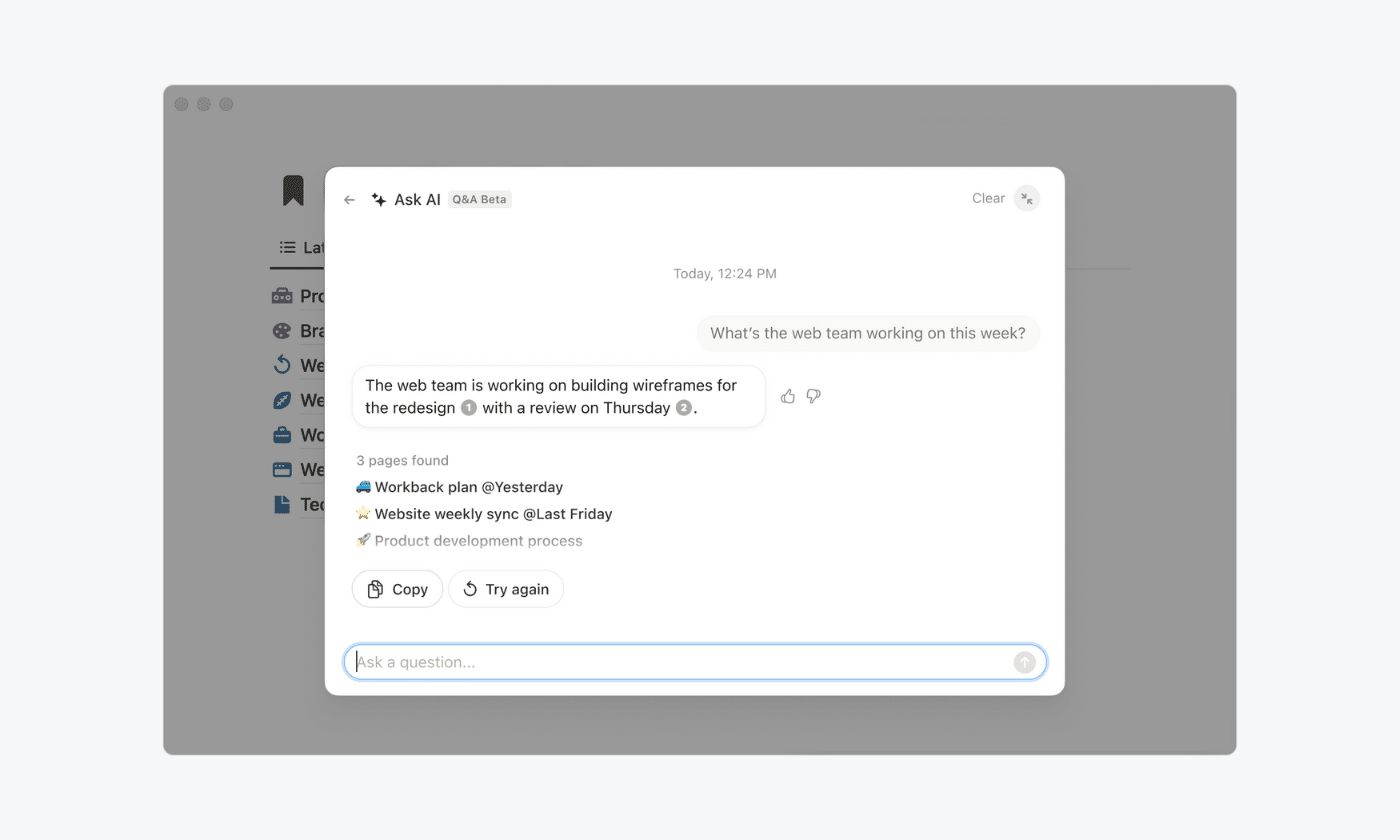
From browsing the website to completing the payment process, customer self-service allows your clients to get the necessary guidance and help without any human involvement. This helps to streamline the shopping process and minimize the chances of leaving the page before making a purchase.
Read more: Check out our article on Tidio AI if you are interested in a tool for AI self-service.
But how exactly AI customer service is changing the business landscape and the world of communication between a brand and its shoppers?
We’ve got all the details, so read on to find out.
Key business benefits of AI in customer service
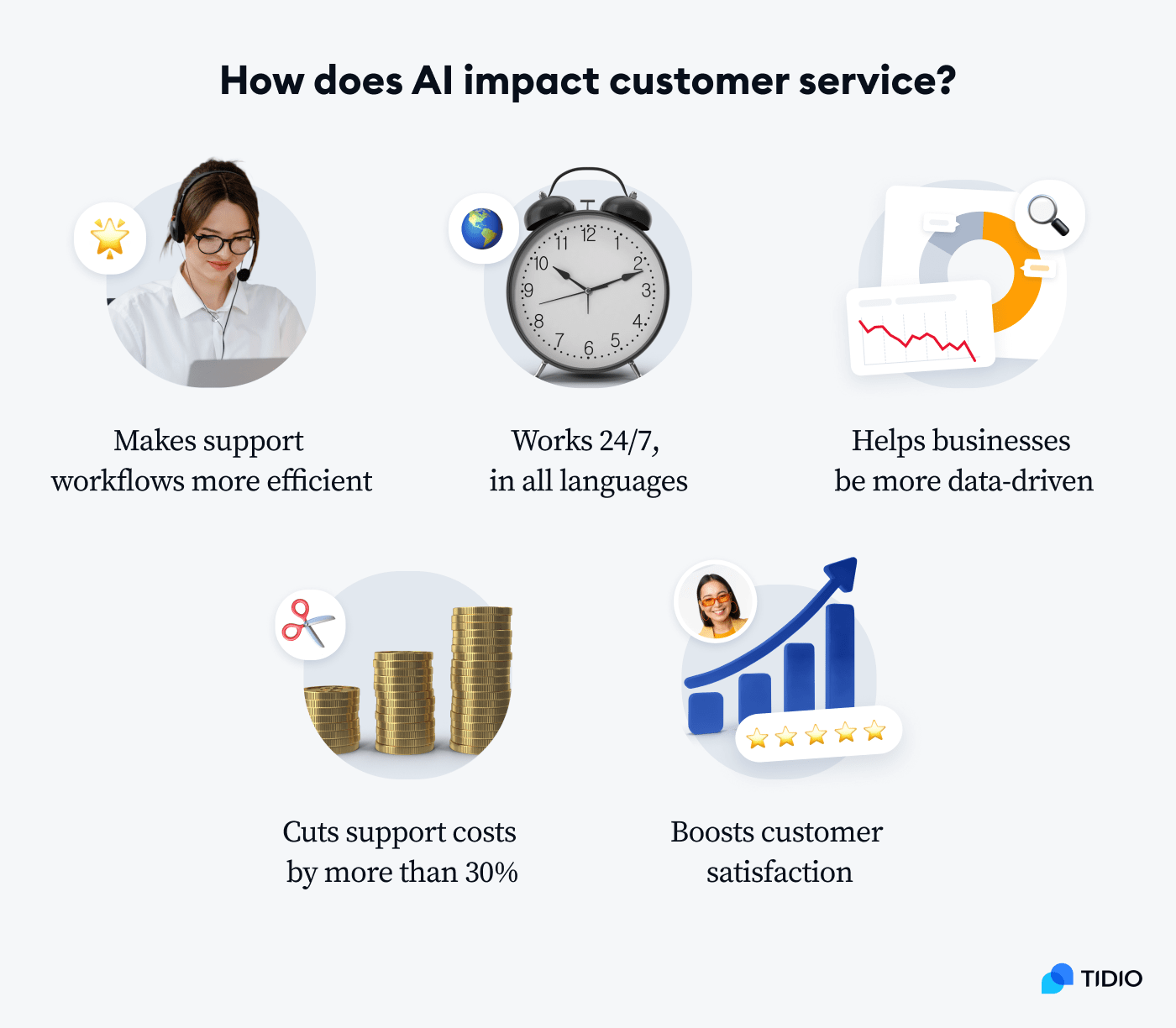
It can be easy to get lost in all AI capabilities. It’s even easier to get confused about all the things this technology can do for your company in particular. However, once you’ve connected the dots, the benefits are extremely tempting.
Here are some of the most important ones:
1. AI makes customer support workflows more efficient
Artificial intelligence for customer service is getting more and more advanced. There are plenty of tools that learn from each visitor’s conversation. These AI solutions become virtual shopping assistants working together with human support agents.
This approach increases agent productivity and decreases wait times without losing the human touch. The result is that the service interaction meets all of the customer needs and increases their satisfaction with the brand.
In fact, over 78% of representatives agree that AI enhances their efficiency at work.
Read more: Discover how Suitor used Lyro to automate customer service and slash response times.
2. AI customer support is available round the clock and in multiple languages
No matter how efficient and productive your support team is, they need to rest. That’s where artificial intelligence technology comes in handy. Customer service AI tools are on the clock 24/7, speak multiple languages, and answer requests in seconds.
It’s also great news for your customers reaching out to the contact center. No matter when, where, and how urgently they require assistance, users can count on you. Such speed combined with the competence of your human support team can help turn your website visitors into loyal customers.
In fact, studies show that about 73% of buyers say that AI improves their customer experience.
3. AI customer support gathers and analyzes data for better user insights
The amount of customer data AI can gather and analyze is truly impressive. AI customer support tools simplify collecting big chunks of information to establish behavioral patterns, get a single client view, and work towards hyper-personalization.
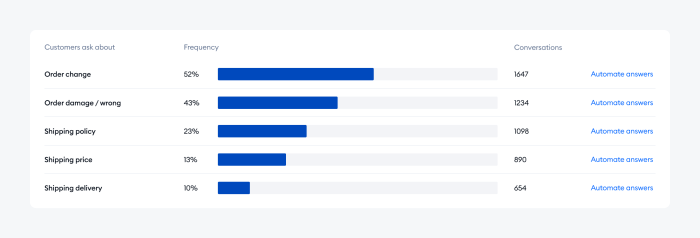
Implementing AI-gathered insights and personalizing customer service experience is crucial. This way, clients get all the relevant information and feel that the brand’s communication is specifically tailored to them.
Read more: Learn the key metrics and chatbot analytics to measure your results more effectively.
4. AI customer service drastically cuts your support costs
The truth is, hiring dozens of support agents is a thousand times more expensive than implementing an AI customer service tool. So, not only do AI solutions bring a lot of money to your company, but they also save plenty of expenses. In fact, more than 28% of business leaders already use AI to cut company costs.
Often, AI tools don’t require a big initial investment to install the software on your website. They have freemium versions to play with, allow you to only get the customized features you need, and come with pre-designed conversation flows and templates. This drastically reduces your support costs and allows you to do much more for much less.
Read more: Check out a full guide on chatbot pricing and analyze different pricing models to pick the right one for your needs.
5. AI boosts customer satisfaction
Personalization, short response times, efficiency, and relevance of customer communication can reach an all-time high with artificial intelligence tools. Modern-day customers are picky and demanding, with as many as 79% claiming they wouldn’t complete their order if customer service was unresponsive.
However, AI customer service tools know a way to win them over by turning first-time visitors into paying customers who stay loyal to the brand and keep returning. In fact, as many as 57% of businesses are already using AI to improve their customer service. Customer satisfaction is everything when it comes to the ultimate goals—increasing revenue and growing your brand.
Since you know the benefits and examples of how to use AI in your customer support, let’s check out how to integrate it into your business.
We’ll use Tidio to demonstrate how to implement AI in your customer service.
How to integrate AI and customer service
Firstly, you should choose a platform that offers AI for customer support. This will depend on the website provider you’re using, as well as the features you need the software to offer. Let’s have a look at how to implement AI into your business in a few simple steps using Lyro, Tidio’s conversational AI.
1. Log into your panel and go to the Lyro tab
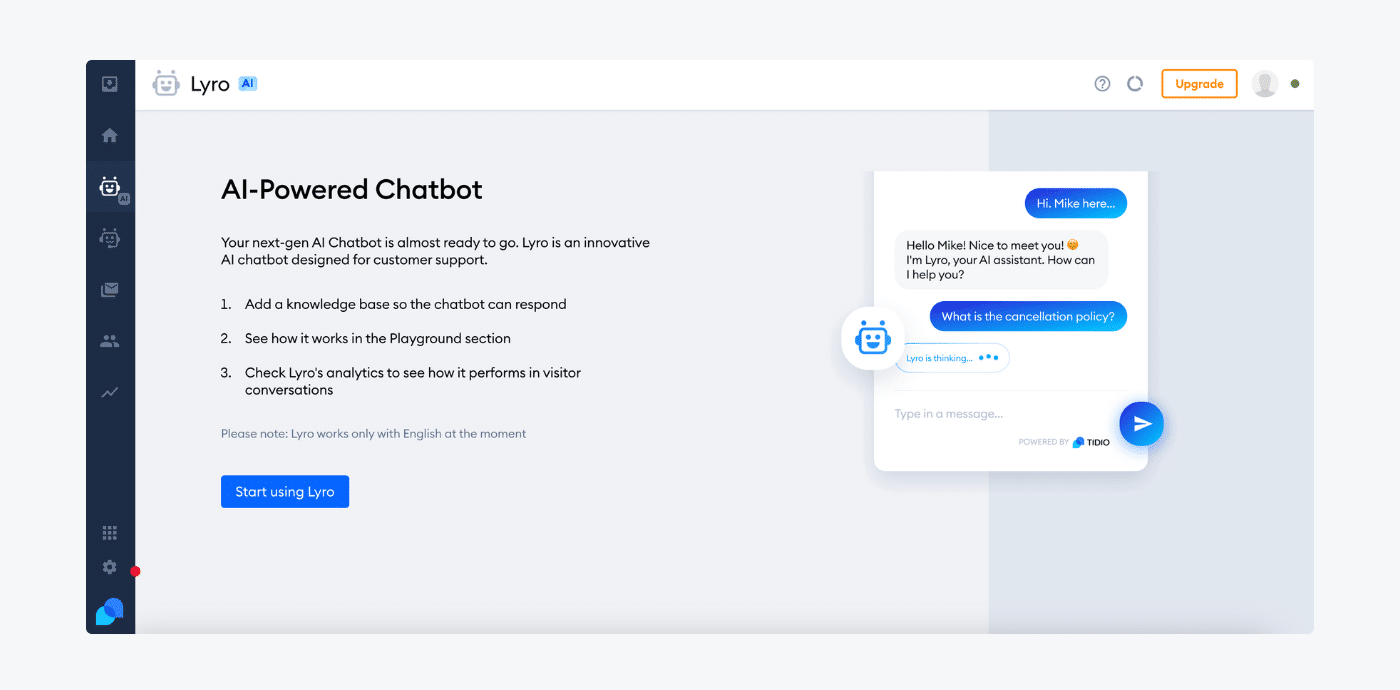
2. Press Start using Lyro, read the restrictions, and click Accept if your sector is not on the presented list
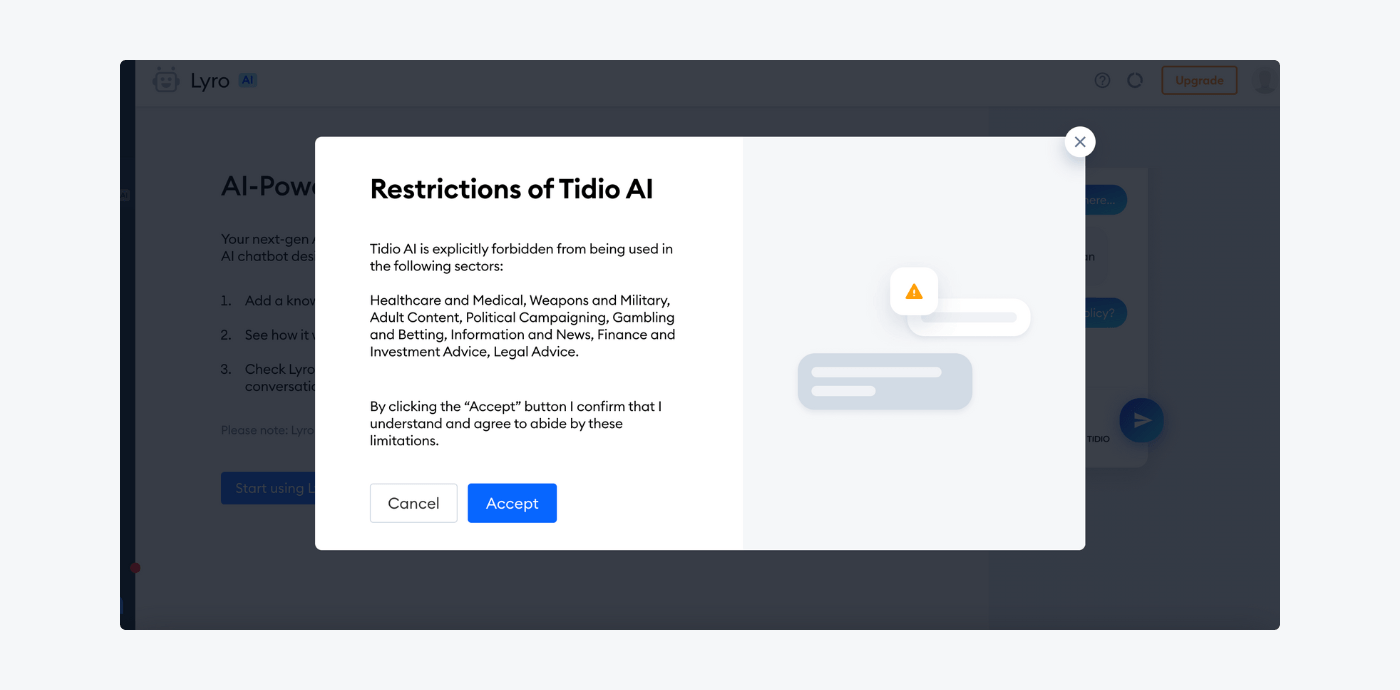
3. Choose to import your FAQs from your website or provide a URL to an external FAQ page

4. Insert the link and click Import—Lyro will automatically gather all the question-answer pairs from the page provided
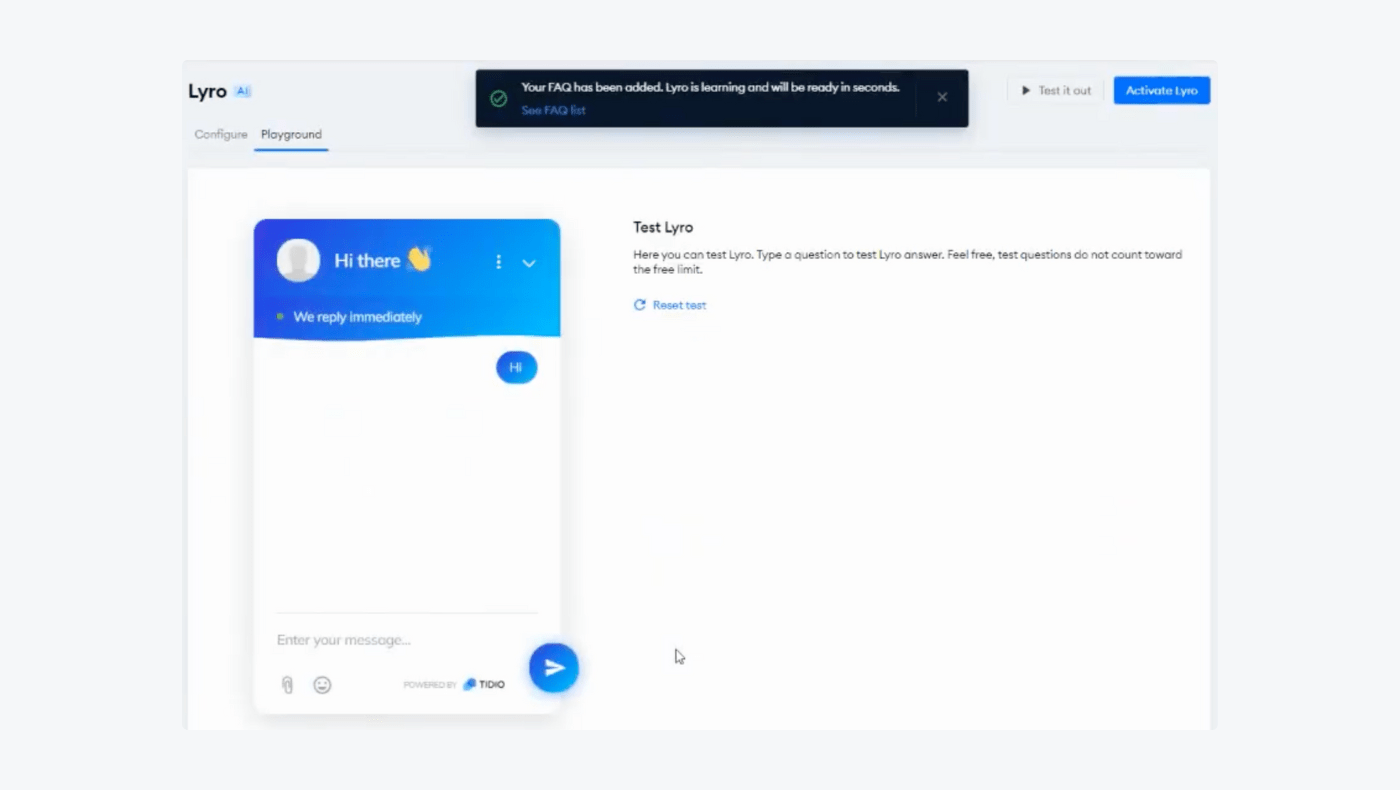
5. Check all the questions by going to the Configure tab
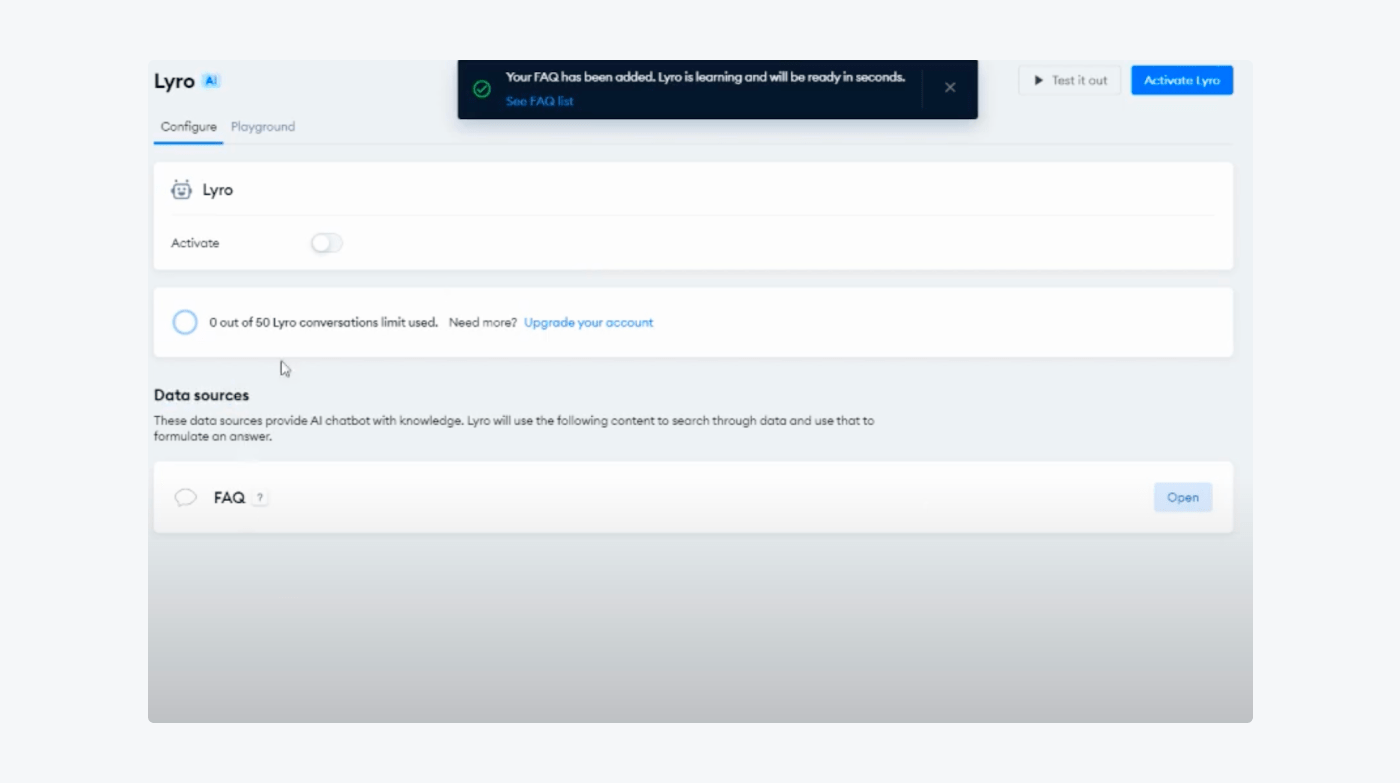
6. Edit any questions or answers by clicking on the three dots next to the question
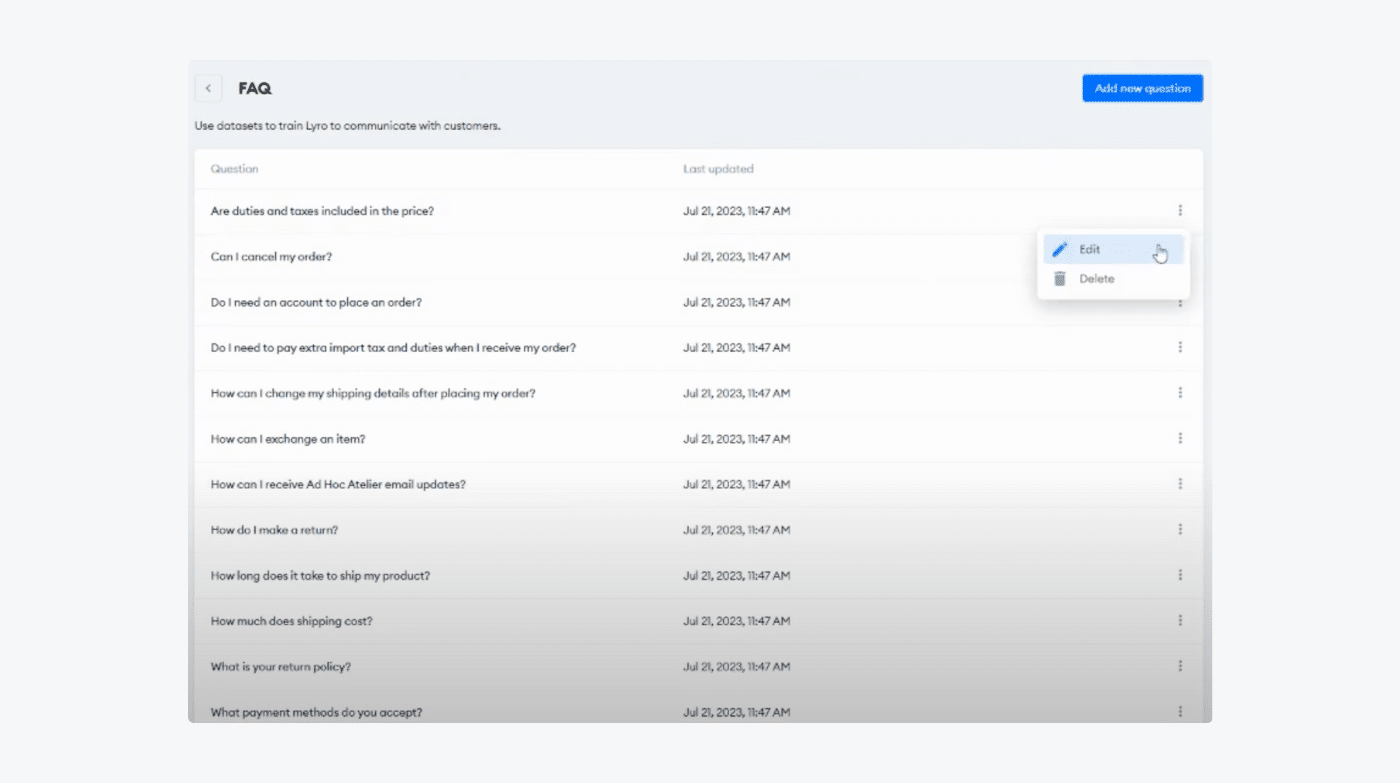
Here’s a video tutorial for a more visual guide:
Read more: Discover how to train your chatbot with tips and a step-by-step guide.
With that out of the way, here’s what you should keep in mind when picking your AI customer service.
What to consider when choosing your customer support AI?
As customer service leaders increasingly look to AI to boost efficiency and enhance the shopper experience, the choice of which AI solution to implement is a critical one. There are several key factors to weigh when evaluating potential customer support AI platforms. These include:
Impact on your team
Your representatives can be apprehensive about the technology, so gather the atmosphere and ensure your service teams that AI is meant to augment their capabilities, not replace them. Emphasize how AI will empower your employees to be more productive and efficient, allowing them to focus on providing exceptional, personalized, and high-quality customer service.
Trust and reliability
Although AI technology is advancing rapidly, there are many concerns relating to its trustworthiness and accuracy of responses. Concerns about privacy and reliability should be taken seriously and must be addressed carefully.
But, basing your AI system’s data on your organization’s trusted CRM and existing knowledge base can help to address concerns around the accuracy and reliability of the AI’s outputs.
Cost and implementation
You might worry about the cost of developing AI customer service software. In that case, you should look for an affordable platform that offers artificial intelligence as part of the functionality.
Okay—
Now let’s take a look at what the future holds for customer support.
The future of AI in customer service
The future of AI-powered customer service is one of increasing automation and augmentation. As generative AI customer service advances, we’ll see it integrate deeper into workflows.
For example, AI can enhance messaging with clients by giving support teams the right context to automate routine tasks, like conversation summaries. It allows customer service agents to focus on more complex, high-value client interactions that require their unique problem-solving and interpersonal skills.
AI customer service: key takeaway
AI customer service is destined to become the standard in the business world. It improves customer support in a multitude of ways, cuts costs, and makes the work of your support agents more efficient. Most importantly, it boosts customer satisfaction with the power of state-of-the-art technology.
As AI customer support is becoming more advanced, businesses shouldn’t miss out on the opportunity to implement AI-powered solutions that could take their growth to the next level.
The great news is that there are tools available not only to large corporations that could afford a fat price tag, but also to small and medium businesses.
Lyro by Tidio is one of them. Why not give it a try?
Boost customer engagement and satisfaction with AI

